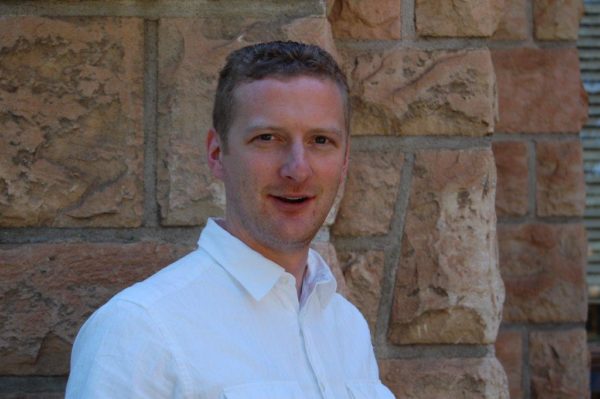
 What is your position or role in the DESI project?
What is your position or role in the DESI project?
I currently work with the Operations team on tasks related to the targets that DESI observes.
Where were you born and where do you live now?
I was born in Newcastle-Upon-Tyne in the UK. People from Newcastle are colloquially referred to as “Geordies” so if you see an email address, Slack handle, or GitHub conversation related to DESI that includes the name “geordie,” that’s probably me. I currently live in Laramie, Wyoming, which is a beautiful mountain town near the Colorado border, about two hours north of Denver.
What do you do as part of DESI?
Prior to the start of DESI operations I wrote much of the “desitarget” software package used to determine the catalogs of targets that DESI would follow up. A lot of my focus, now, is on maintaining the ledgers that track which targets DESI has observed, the redshift of each observed target, and how many more observations we need of each target given its current observational state. Tracking targets in this manner is particularly important for quasars, for which we want additional observations if they can be used for studies of the Lyman-alpha Forest. I also contribute new code to desitarget for other goals related to targeting, such as observing new special targeting classes, and creating random catalogs that mimic the footprint of the imaging surveys from which DESI selected targets. Basically, I write and maintain a lot of software!
What is the most interesting or exciting thing about your job?
I love writing code and I love working in a large collaboration. It’s exciting to see years of careful planning come to fruition—for instance, when we started to obtain spectra for large numbers of targets during the DESI Survey Validation phase and confirmed that we were targeting the expected numbers of cosmological tracers. I find it particularly interesting to interact with experts who have a plethora of complementary skills (instrumentation, computation, theory, observation, etc.) and with a wide range of science goals. It’s also satisfying to see people using, and improving, code that I initially wrote, and to be contacted with questions about how or why DESI adopted certain targeting strategies. Basically, it’s a lot of fun to be part of a team of people working on a common project.
Any advice for an aspiring scientist/engineer?
Get involved. I think it’s important to realize that every contribution, no matter how small it might seem, is needed and appreciated. Even if you don’t, ultimately, end up with the job you expect, it’s amazing to be able to say that a major experiment to study the Universe achieved some of its goals because of something you did. So, jump in and volunteer to write code or serve on a committee. Like with any job, networking is important to becoming a professional scientist. So, try to work on projects with a number of different colleagues and try to take the opportunity to socialize with new people at collaboration meetings. I can identify several meetings in my career where I almost didn’t attend and I wound up having dinner with people with whom I still collaborate ten-to-fifteen years later.
What do you do for fun?
I hike as much as possible. Laramie is only an hour-and-a-half from Rocky Mountain National Park, and is an easy day’s drive from multiple other national parks in Wyoming and Utah. Plus, there are any number of amazing locations in the Rockies that are off the beaten track. It’s a really beautiful part of the world.